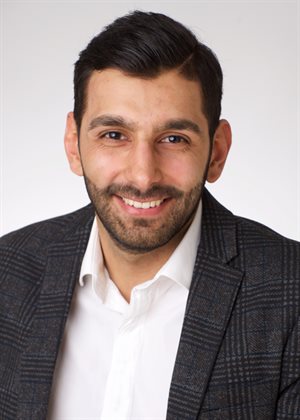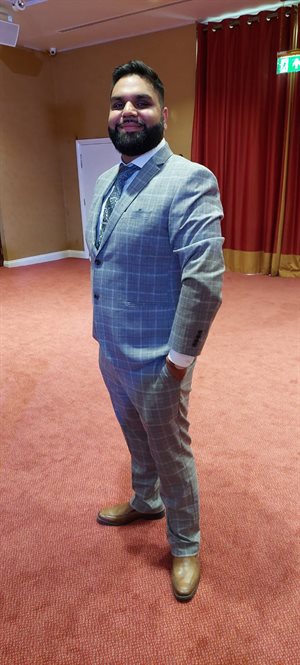
St George’s alumni, Dr Talha Sami and Dr Rakin Anwar, have collaborated to create a guide to provide advice and support to GP trainees, doctors, and Medicine Students for the Recorded Consultation Assessment (RCA). The Recorded Consultation Assessment (RCA) is based on recordings of telephone and video consultations with genuine patients. Their book, Essential Guide to the RCA for the MRCGP, shares advice with students on topics including setting up technology for telephone, video and face-to-face consultations and working with your practice team to identify patients’ needs. They spoke to us to reflect on what motivated them to create the book and how they have adapted their own practice to adjust to new approaches to patient consultation.
Lead author and GP, Dr Sami, released Take A Deep Breath: Diary of a Junior Doctor in the NHS During the Pandemic, last year. Speaking about the decision behind his second book, he explains:
“I have always had an interest in Medical Education and emerging technologies. Rakin and I have also both completed postgraduate study, which has instilled in us a fondness of teaching."
He adds, “In 2020, I was working as a final year GP when Covid hit. During this time, practices worked quickly to adapt to the move from face-to-face consultations to handling patient queries remotely. Before the pandemic, remote consultations were already being presented as a solution to the high demand for appointments at GP surgeries. This change in the way we operate has helped ensure that teams are able to manage their workload in a way that addresses all patients’ needs and optimises care.
“Now that many surgeries have adapted to new ways of working, remote consulting is becoming more and more common - so it is even more important that current medical students are prepared to deal with patients online or over the telephone, as well as face-to-face. I noticed that no books had been published on this exam, so we thought that students would benefit from hearing more about how to manage some of the challenges of virtual consulting.”
Dr Anwar is a GP who has been teaching Problem-Based Learning, Clinical Skills and Communication skills as a Lecturer at St George’s for the last two years. He shares how he was able to use his experience of the transition from Medical student to GP and Lecturer as a contributing author:
“When we started writing the book, I was not that far removed from training myself and this really helped me bring my own perspective as a recent student. Coming back to St George’s to take on a lecturing role has also allowed me to see things through the eyes of my own students."
He adds: "Technology is changing rapidly and the way in which we handle patient consultations is still evolving, so speaking to current students has given me insight into some of the current challenges they face which might have changed since I was undergoing training.”
Reflecting on how his time at St George’s has shaped his career since, Dr Sami shares: “St George’s was a very diverse environment to learn in and I enjoyed studying with, and learning from, people from very diverse backgrounds who brought their own unique set of experiences. I think this really helps prepare you for a role which involves treating patients from very different walks of life.
“There was a strong emphasis on communication skills at St George’s, and these skills have been essential in my role as a doctor. They are particularly important now that we are interacting with patients in new ways, because we have to be prepared to adapt our approach depending on whether we are speaking to them online, over the phone or face-to-face.”

Dr Anwar adds: “The less traditional, more holistic approach to teaching at St George’s meant that it was a great place to learn about different aspects of Medicine and develop your interests. Teaching transferrable skills helps equip students with the tools to become competent and safe doctors.
"Developing strong communication skills as a student helps you to effectively build relationships with patients in your role as a doctor. This allows you to understand their complex needs and how best to handle them.”
Sharing advice with current students, Dr Anwar says, “It’s important that those at the start of their career don’t put too much pressure on themselves. It can be difficult when you are first starting out, so it’s important to give yourself the space to learn things in your own time and remember that you won’t know it all straight away.” Dr Sami adds, “We work in a profession which calls for you to go the extra mile, and you do need to be prepared to work very hard and take on new challenges in order to grow as a doctor. But you should also be aware of your own limitations.”
Speaking about the key message they both hope to share through their book, Dr Sami and Dr Anwar reflect on its opening words, which are taken from the Quran and translate to “Say the straightforward word.”
Dr Sami explains: “Medicine is all about helping people with your words, and that is what we hope to do – because whatever platform you are using to speak to patients, good communication is key.”